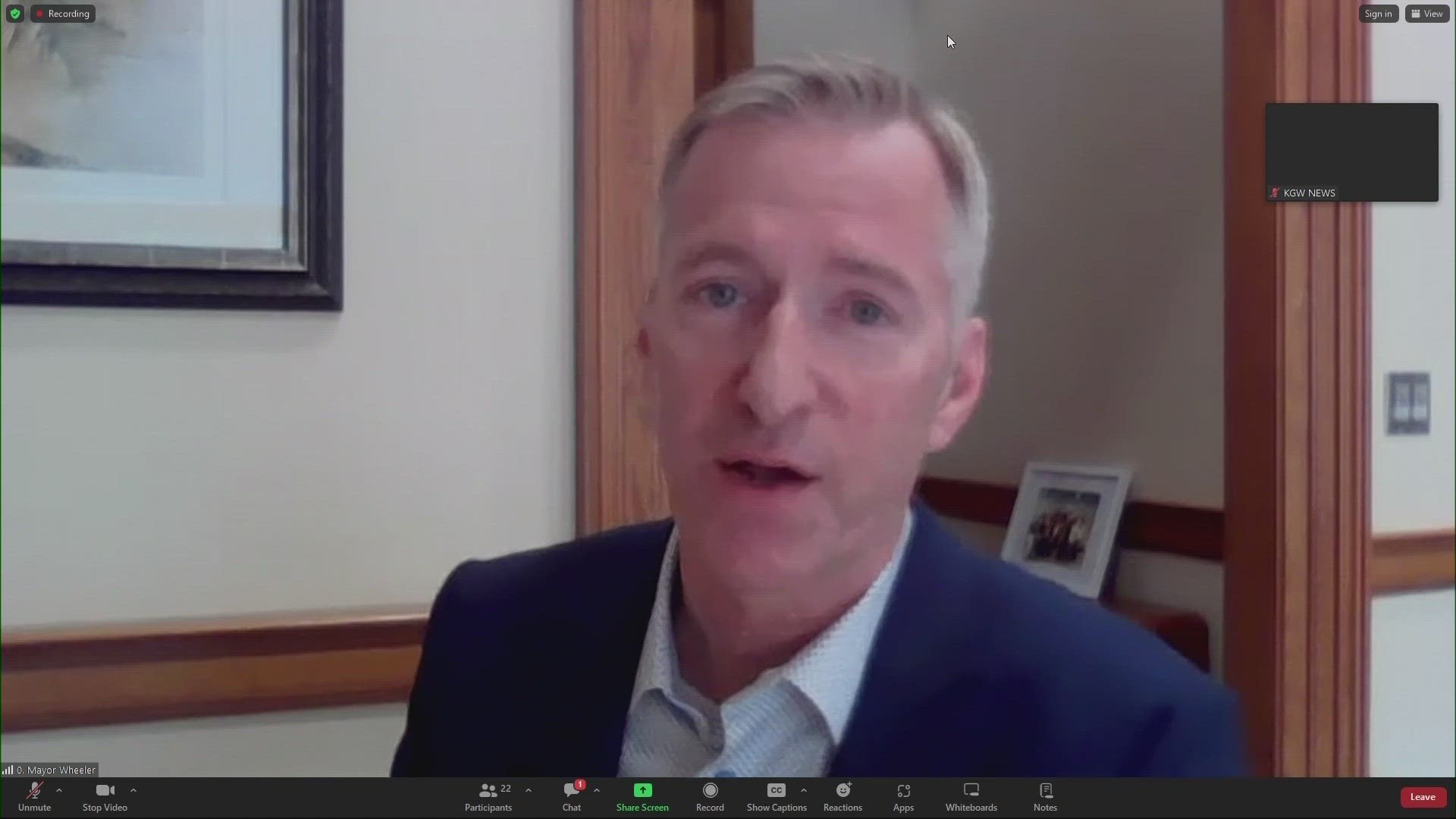PORTLAND, Ore. — Portland Mayor Ted Wheeler outlined details Tuesday of a new camping ban ordinance that he intends to bring up at Wednesday's city council meeting. The city was hit with legal challenge over a previous version of the policy, and the update comes as the U.S. Supreme Court is considering a case that could upend the legal landscape around camping bans.
The Portland City Council enacted a daytime camping ban last year, but the ordinance was challenged in court and put on hold. The dispute stems from House Bill 3115, a 2021 Oregon law that requires local governments to include reasonable time, place and manner rules in any ordinance regulating camping on public property.
The mayor unveiled his updated ordinance earlier this month, which would permit $100 fines or week-long jail sentences for homeless campers who refuse an offer of open shelter space. The requirement for available shelter space in the ordinance is intended to help it survive the kind of court challenge that led to the previous attempt being put on hold.
"What we envision is that we offer people shelter or assistance; if that shelter or assistance is not available — in other words, we don't have adequate shelter — people would still be required to abide by the manner restrictions listed in this ordinance," Wheeler said at a virtual news conference Tuesday morning.
Wheeler's new ordinance was originally scheduled to go to the city council last week, but was pushed back by the introduction of a different proposal from Commissioner Rene Gonzalez that would impose stiffer penalties for campers and concentrate homelessness policymaking power under the mayor, taking it out of the council's hands.
Gonzalez has since walked back the increased penalties, but would still hand the mayor unilateral authority over homelessness policies. Alongside commissioners Mingus Mapps and Carmen Rubio, Gonzalez is running to be Portland's next mayor — were he to win in November, that executive power would be his to wield.
Wheeler criticized Gonzalez's plan on Tuesday, stating that his own proposal "does not delegate the responsibility for establishing specific restrictions; it requires the council to meet in the light of day to take public testimony, to be very transparent about what the manner restrictions are."
He argued that his own plan stands a better chance of surviving a court challenge under House Bill 3115, and he said that should be the primary consideration because the state law will still apply even if the U.S. Supreme Court overturns Martin v. Boise.
The 2018 Ninth Circuit Court decision currently prevents cities from banning camping if there isn't sufficient shelter space available. Portland City Attorney Robert Taylor said the specific stated intent of House Bill 3115 in Oregon was to codify the requirements of the 2018 decision into state law, in case the Supreme Court overturns the ruling.
"Even if Martin v. Boise goes away, we are still subject to House Bill 3115," Wheeler said. "And some people have suggested 'Well, we should overturn House Bill 3115 and give cities the maximum amount of discretion,' but the earliest that could possibly happen would be the next legislative session, which doesn't start until 2025."
Wheeler acknowledged that Portland faces chronic shortages of shelter beds, but Wheeler policy advisor Skyler Brocker-Knapp said two more large-scale sanctioned camping sites are currently under construction, with another going through the environmental process, collectively adding hundreds more slots.
The Wheeler and Gonzalez plans are both scheduled for council discussion on Wednesday, along with multiple proposed amendments. Asked about how the city council ended up in the position of deciding between competing plans, Wheeler said he meets with all the commissioners regularly and they've all had opportunities to have input on his new proposal.
"They may just fundamentally disagree," he said.

